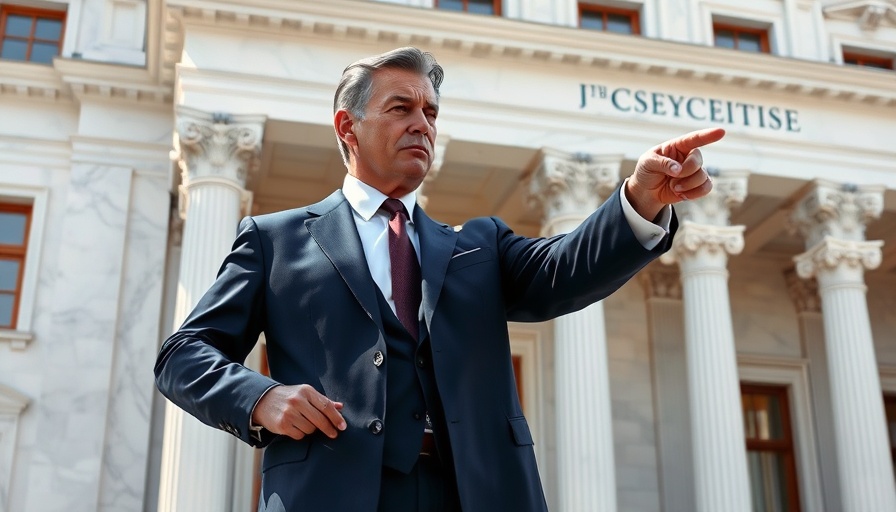
Trump’s Trade Tactics: The TACO Phenomenon Explained
In a surprising twist of fate, U.S. President Donald Trump recently reacted to the nickname "TACO," which stands for "Trump Always Chickens Out." This term, coined by Financial Times columnist Robert Armstrong, encapsulates the President's unique approach to trade negotiations, especially in response to tariffs. Following a swearing-in ceremony for the District of Columbia's interim U.S. Attorney, Jeanine Pirro, Trump was confronted about the moniker, asserting that he is not a "chicken" when it comes to trade.
A Closer Look at TACO Trade
The acronym TACO highlights Trump's behavior regarding his trade policies, particularly the pattern of threatening significant tariffs and subsequently retreating when faced with backlash from international partners. For instance, markets often react negatively to Trump's tariff announcements but show signs of recovery once he backs down. This cyclical behavior raises questions about the effectiveness and future of Trump's aggressive trade stance.
Understanding the Economic Impact
It’s undeniable that trade policies have far-reaching effects not just on the economy but also on global relations. Trade analysts argue that this TACO behavior could lead to instability in international markets. For example, when the President hints at new tariffs, many importers rush to stockpile goods or make logistical changes, anticipating prices to rise. As a consequence, when Trump reassesses and retracts those tariffs, the markets experience a short-lived bounce, masking a deeper uncertainty in fiscal policies.
The Political Ramifications of Trade ‘Chicken’
Trump’s tendency to negotiate through intimidation or aggression brings forth multiple layers of political analysis. Critics argue that such tactics could alienate potential allies and stymie long-term trade agreements. Instead of fostering partnerships based on mutual respect, this approach may make allies wary of future negotiations, effectively boxing the U.S. into a corner in international trade discussions.
Public Perception and Media Reactions
The media portrayal of Trump's trade strategies often oscillates between admiration for his boldness and criticism of his unpredictability. For instance, when Trump launched his trade war against China, some supporters praised him for taking a firm stance against what they viewed as unfair trade practices. However, the fluctuating nature of his policies led to backlash from businesses affected by sudden tariff changes due to planning disruptions and increased costs.
The Future of Trade under Trump’s Leadership
Looking ahead, the anticipated 2024 Presidential election could dramatically shift American trade policies. If Trump runs again, the impact of his TACO strategies will likely be a focal point in his campaign platform. Voters will need to weigh the current economic landscape against the potential risks of a continuation of these rapidly fluctuating trade policies.
What Voters Should Consider
Voters ought to be cognizant of the implications of Trump’s trade tactics not only on their pocketbooks but also on America’s standing in the global marketplace. As tariffs fluctuate and markets respond accordingly, the importance of stable, predictable trade policies resounds louder than ever before.
This nuanced narrative surrounding Trump's trade approach serves as a reminder that policies not only affect economics but also political landscapes, international relationships, and discourse among key stakeholders in the economy.
 Add Row
Add Row  Add
Add 




 Add Row
Add Row  Add
Add 

Write A Comment